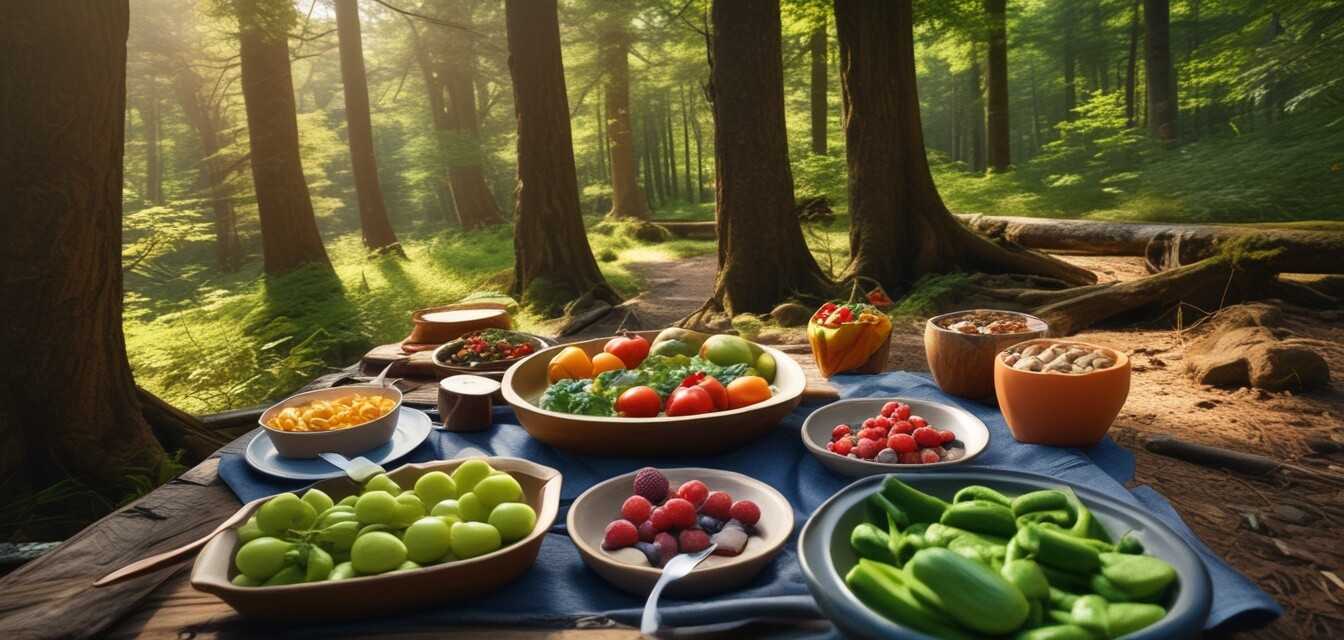
As an Amazon Associate, I earn from any qualifying purchases, at No Extra Cost to You.
Exploring the trend of vegan backpacking
Key Takeaways
- Vegan backpacking is on the rise, driven by environmental and health considerations.
- Planning vegan meals requires careful consideration of nutrition, taste, and durability.
- Choosing the right products can enhance the vegan backpacking experience.
- Staying organized is crucial to enjoy a seamless vegan backpacking adventure.
The world of backpacking continues to evolve, and one of the most significant trends gaining momentum is vegan backpacking. As more outdoor enthusiasts adopt plant-based diets for health, ethical, and environmental reasons, the backpacking community has seen a surge in interest in vegan meal options. This article explores this growing trend, provides insights into planning vegan meals, and offers tips for selecting the right products for your plant-based trekking adventures.
The rise of vegan backpacking
The trend of vegan backpacking reflects a broader societal shift towards healthier and more sustainable eating habits. Many backpackers are recognizing the benefits of a vegan lifestyle, which not only contributes positively to personal wellness but also reduces environmental impact.
Why choose vegan backpacking?
- Health benefits: A well-planned vegan diet can offer abundant nutrients and promote overall health.
- Environmental concerns: Vegan diets tend to leave a smaller carbon footprint compared to meat-based diets.
- Animal welfare: Choosing plant-based options aligns with ethical choices regarding animals.
Planning vegan meals for backpacking
Essential nutritional considerations
When assembling a vegan meal plan for your backpacking trip, it’s crucial to ensure that you are meeting your nutritional needs. Here’s how to cover your bases:
| Nutrient | Sources | Suggestions for Snacks/Meals |
|---|---|---|
| Protein | Legumes, nuts, seeds, tofu | Chickpea salad, nut mix, protein bars |
| Carbohydrates | Whole grains, fruits, vegetables | Quinoa salad, dried fruits, whole grain wraps |
| Fats | Nuts, seeds, avocados | Nut butter packets, trail mix |
| Vitamins and minerals | Leafy greens, fruits, fortified foods | Vegetable soup, fortified cereals |
Tips for planning vegan meals
- Choose lightweight, non-perishable foods: Options like dehydrated meals, protein bars, and nut butters can be great meal components.
- Meal prep: Pre-cook and dehydrate meals at home, ensuring they're seasoned and flavorful before the trip.
- Pack snacks: Bring a variety of snacks to keep your energy up while hiking. Look for options like trail mix or energy balls.
- Stay hydrated: Always carry adequate water; consider a lightweight purifier for natural sources.
Choosing the right products for vegan backpacking
Just as important as meal planning is selecting the right gear and products to complement your vegan backpacking experience. Here are a few recommendations:
Essential gear for vegan backpacking
| Product Category | Features to Look For | Recommendations |
|---|---|---|
| Backpacks | Lightweight, durable, sufficient capacity | Look for backpacks with compartments for food storage. |
| Cooking Gear | Compact, easy to clean, multi-functional | Portable stoves, collapsible cookware, and utensils are ideal. |
| Storage Bags | Sealable, lightweight, moisture-proof | Use these for organizing snacks and meals, reducing bulk. |
| Water Bottles | Durable, insulated, filters | Invest in reusable bottles with built-in filters for convenience. |
Staying organized on the trail
Staying organized can make all the difference in having a successful vegan backpacking trip. Here are a few tips to help you keep your meals and gear sorted:
- Use packing cubes: These help keep your clothing and food items organized.
- Plan your meals: Know what you will eat each day to avoid bringing too many items.
- Label items: Use labels to identify snacks and meals quickly, especially during bulk packing.
- Check for allergens: Ensure all foods are safe and suitable for any dietary restrictions among your group.
Pros
- Reduced environmental impact by minimizing animal product consumption.
- Healthier eating options can boost energy levels on the trail.
- Increased variety of meals and snacks available.
- Appealing to ethical standards regarding animal welfare.
Cons
- Planning requires more research and preparation than traditional meal planning.
- Some vegan options can be higher in processed sugars and fats.
- Potential difficulty finding certain vegan products in remote locations.
Exploring the trend of vegan backpacking offers exciting opportunities to enjoy the beauty of nature while staying true to personal values. Whether you’re an experienced backpacker or just beginning, embracing vegan meal planning can pave the way for a fulfilling outdoor adventure.
For more in-depth information on different backpacking essentials and tips, check out our buying guides or explore the latest news in the backpacking community.
Are you ready to hit the trails with a plant-based approach? Make sure to visit our cooking gear section for the necessary equipment to prepare your meals and snacks while enjoying the majestic outdoors.